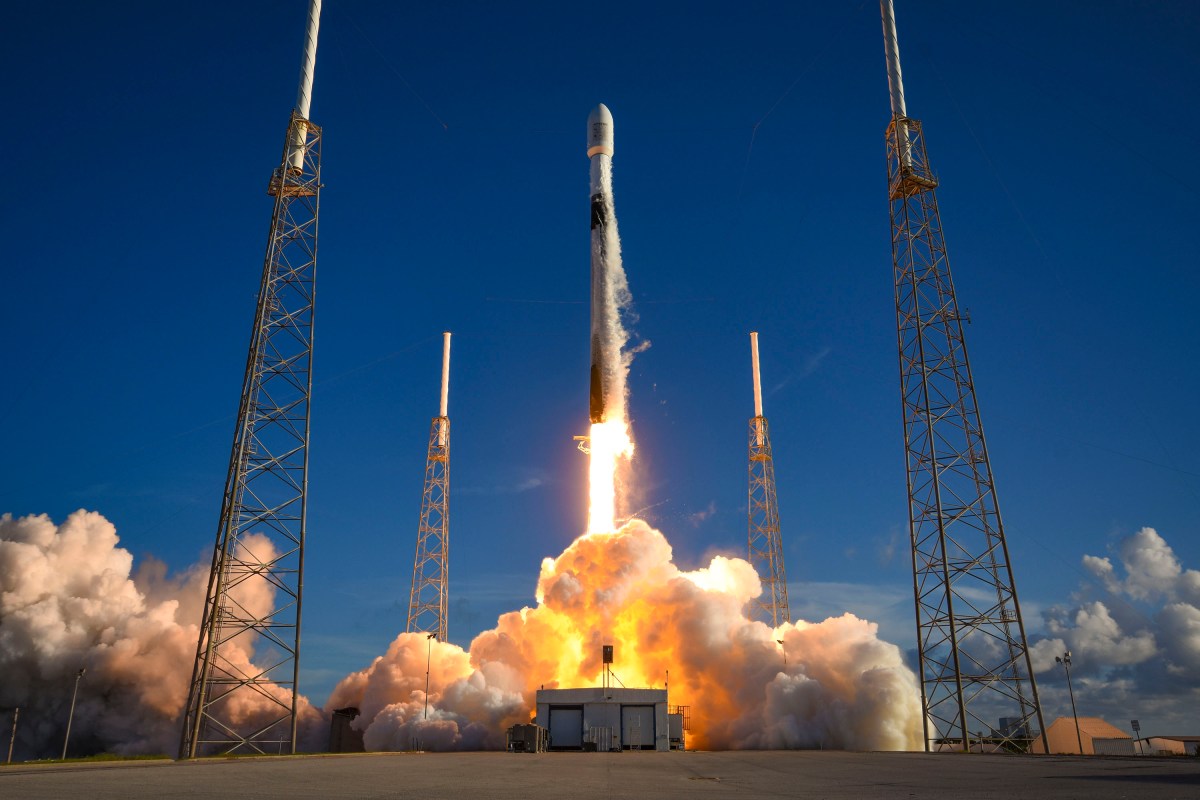A Billion-Dollar Gamble on the Future of Space Travel
The stars aren't just for dreamers anymore—they’re for contractors. On Friday, SpaceX clinched an eye-popping $733 million contract from the U.S. Space Force for eight launches. This win positions SpaceX as the dominant force in the highly competitive space launch industry, leaving its rivals scrambling to keep up.
With missions ranging from the National Reconnaissance Office to the Space Development Agency, this deal is a sign that the Space Force isn’t just doubling down on Elon Musk’s brainchild—it’s betting the house. These Falcon 9-powered launches are set to start in 2026, proving once again that when it comes to near-Earth orbit, SpaceX plays the long game.
The Space Force's Mission: Where Competition Meets the Stars
This round of contracts is part of the “National Security Space Launch Phase 3”—a government initiative designed to foster competition and innovation in the aerospace sector. The program was split into two lanes last year:
- Lane 1: For lower-risk missions to near-Earth orbits.
- Lane 2: Heavy-lift missions requiring more advanced propulsion and logistics.
The Space Force didn't just stop with SpaceX. Blue Origin, which has yet to make it to orbit (but somehow remains in the race), and United Launch Alliance (ULA) were also tapped to compete under Lane 1, showing the government’s commitment to keeping the competitive spirit alive. But let’s be real: SpaceX isn't just in the race—it’s lapping the field.
The next round of Lane 1 contracts is expected later this year, with a total projected value of $5.6 billion over five years. With new players and vehicles on the horizon, including potential next-gen launches from Rocket Lab and Relativity Space, the launch race could soon become a battlefield of rockets, innovation, and billion-dollar dreams.
A Winning Strategy: How SpaceX Set Itself Apart
SpaceX's win isn’t just about great engineering—it’s about building trust. The U.S. military doesn’t gamble lightly, and awarding such a massive contract to SpaceX shows just how far the company has come in proving itself. Here’s why SpaceX clinched the deal:
- Reliability: Falcon 9 rockets are known for their high success rate, thanks to years of rapid iteration and reusable designs.
- Cost-Effective Launches: SpaceX’s reusable boosters have slashed costs, setting the company apart in a field notorious for budget overruns.
- Track Record: From missions to the ISS to launching Starlink satellites, SpaceX has become synonymous with dependable launches.
- Agility: The company’s ability to adapt and meet new mission demands makes it a top choice for government contracts.
Competition on the Horizon: Can Newcomers Challenge SpaceX?
Despite SpaceX’s dominance, the Space Force is actively seeking “increasing competition and diversity” in its launch partners. This is where things get interesting:
- Blue Origin, founded by Jeff Bezos, has yet to demonstrate the same level of reliability but remains in the running with its New Glenn rocket.
- ULA, a veteran in the space industry, is banking on its Vulcan Centaur vehicle to stay relevant in the rapidly changing launch market.
With the next round of Lane 1 bidding expected to open later this year, the space race isn’t over. Far from it. The pressure is on for new entrants like Rocket Lab to make their mark before SpaceX locks in the lion’s share of missions.
Phase 3 Lane 1: A Five-Year Window to the Future
The Phase 3 Lane 1 contracts run from 2025 to 2029, with a potential five-year extension. That’s a long runway for ambitious companies looking to establish themselves in the national security sector. But for SpaceX, every launch isn’t just about winning contracts—it’s about redefining what’s possible.
This isn’t just a story about contracts and launches—it’s a story about ambition, about pushing the boundaries of what private companies can do in the space industry. If SpaceX succeeds, the future of space travel could belong to those who dare to dream—and deliver.
What Does This Mean for the Space Industry?
SpaceX’s latest contract win signals a shift in the aerospace landscape. The old guard—companies that once dominated the launch business—are now competing against leaner, faster, and cheaper operations. This is the new normal: fast innovation, lower costs, and reusable rockets that make space more accessible than ever before.
But with more competitors waiting to enter the field, the stakes have never been higher. This isn’t just a contract; it’s a call to arms for other companies to up their game or risk being left in the dust.
The Bigger Picture: Why This Matters for Humanity
This contract isn’t just about launching spy satellites or ferrying cargo into space. It’s about paving the way for a new era of space exploration. As SpaceX, the Space Force, and others push the boundaries of what’s possible, we’re inching closer to a future where space travel is routine—where human colonies on the Moon and Mars might become reality.
The message is clear: The future isn’t just above us—it’s within reach. And if companies like SpaceX succeed, that future won’t just be for astronauts and billionaires—it’ll be for everyone.
What’s Your Take?
Would you bet on SpaceX to carry us into the next era of space exploration? Or do you think companies like Blue Origin and ULA will give them a run for their money? What role do you think private companies should play in national security missions? We’d love to hear from you!
Join the conversation and become part of the "Shining City on the Web" . Like, share, and participate in the debate—because the future belongs to those who dare to shape it.



















Post Comment
You must be logged in to post a comment.